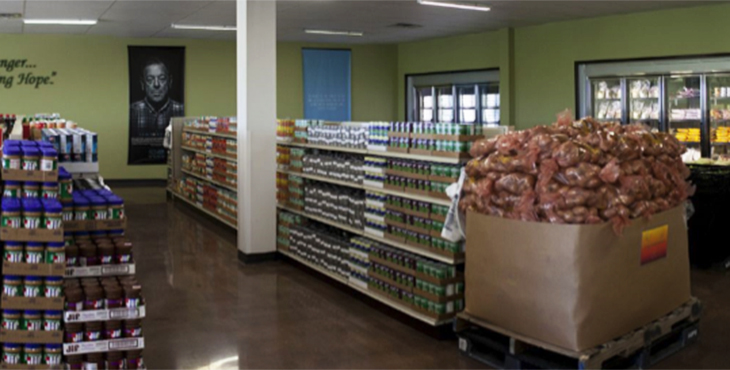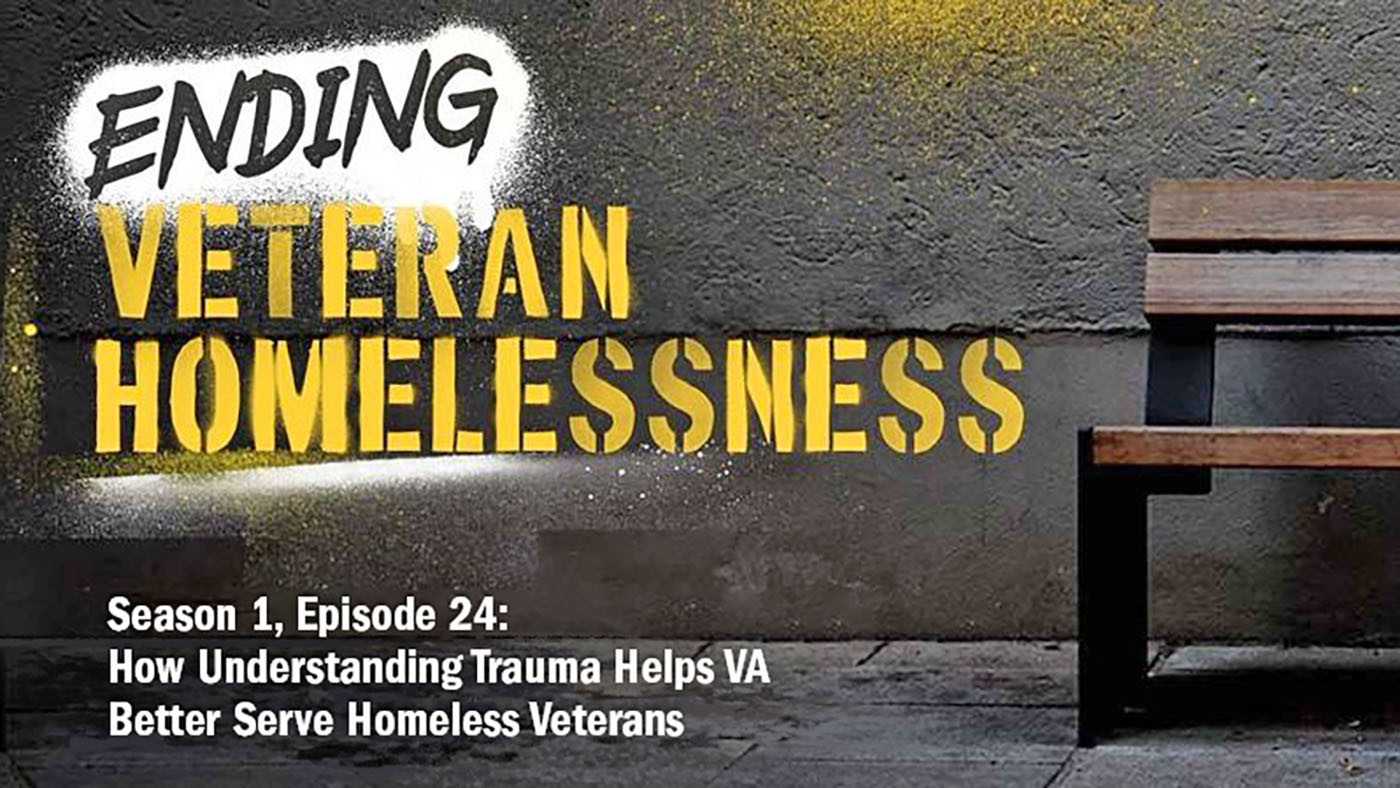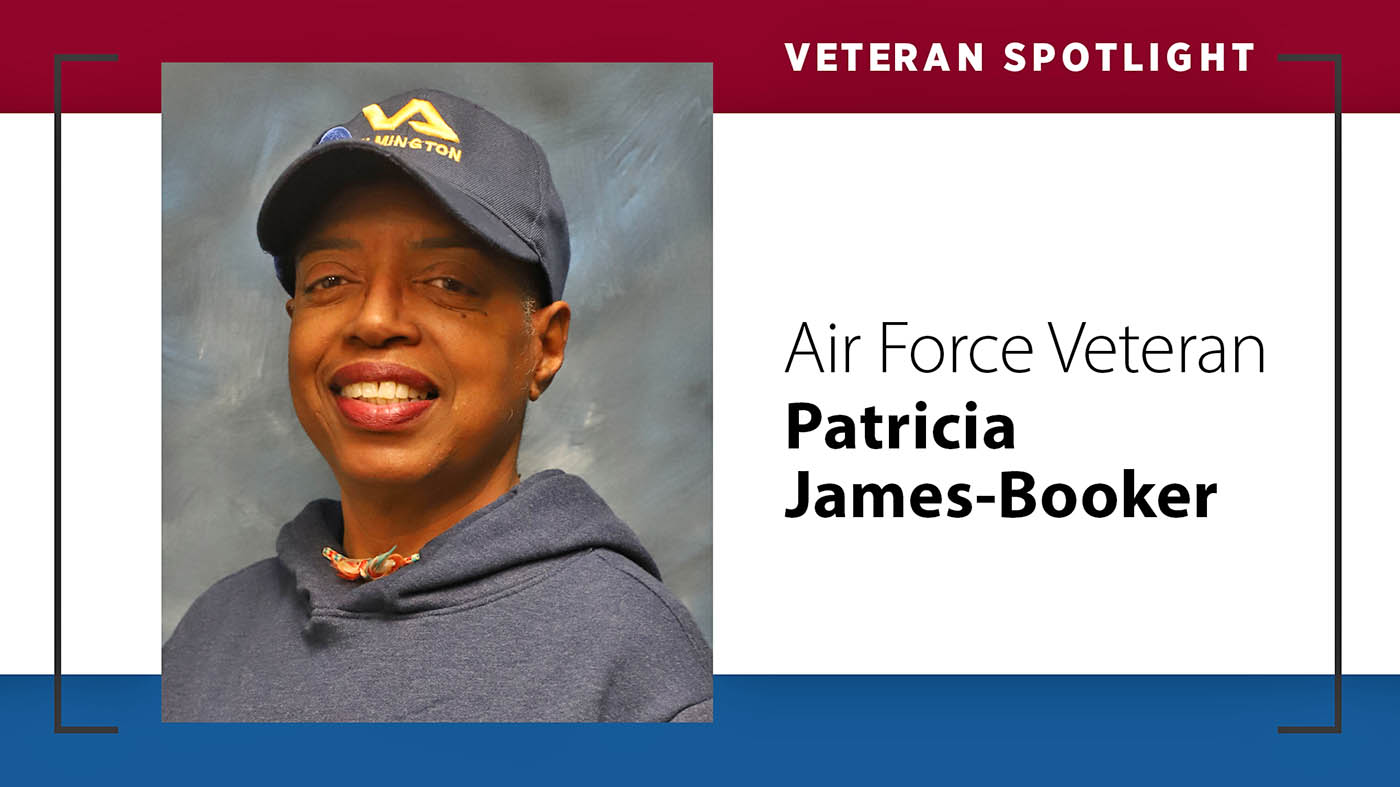Moving usually comes at a cost. And when transitioning out of homelessness, that cost — which can include basic necessities like food — can be insurmountable. As homeless program coordinator for the Oklahoma City VA Health Care System, I recognized that recently housed Veterans needed better access to these necessities. I presented the challenge to VA partners and, together, we created a solution.
Some Veterans exiting homelessness are unable to use area food pantries at the time of their move because they don’t yet have a document to show proof of residence, such as a lease or utility bill. They also face challenges because different area food pantries operate on different schedules, sometimes with restricted hours. A Veteran also may not have a way to get to a distant food pantry.
In addition, recently housed Veterans must rely on the standard food bank allowance, which is typically enough food and other necessities for just one person for a couple of weeks. However, it’s often not enough to build up pantry basics. In this situation, Veterans and their families might have to decide what they can do without, choosing among personal care products such as shampoo and soap, and food items — which means it could take a long time to fully stock the home for an entire family.

My team and I worked with Goodwill and the food bank to establish participating food pantry locations and develop a referral form so that Veterans who have no proof of residence could still be served. The partners, and I also figured out a way for Veterans to receive assistance during off-hours: When a pantry is closed to the public but still staffed, Veterans can bring their VA caseworker and present the referral form to get access and services.
As part of the fridge fill service, one of the designated pantries gives Veterans unlimited access to fresh produce — as much as can be carried away. The program also authorizes Veterans a one-time allowance of food and supplies for the equivalent of six people, regardless of the Veteran’s family size. This is to assist the Veteran in stocking an empty residence with essentials before move-in.
For one Veteran, the fridge fill program made an enormous impact in an unfortunate situation. The Veteran had cashed a check at an area store to buy groceries and purchase a money order to pay rent. While browsing items at the store, the Veteran set the envelope of cash down for just a few minutes, but within that short time frame, it disappeared. The Veteran’s case manager and peer support specialist quickly set up a fridge fill, so the Veteran didn’t have to go without groceries until the next check. They also coordinated VA resources to resolve the Veteran’s rent payment.
The fridge fill program is made possible because of organization wide partnerships, but it also exists because of donations from those in the community. Our team, including community employment coordinator Titus Jacobs, encourages everyone to donate to their local food pantries but advises that community members check with their area pantry to see which items are needed most. They also remind everyone that a Veteran’s exit from homelessness can be difficult and complex, so “try to soften that transition as much as possible for them,” says Titus.
Outside of the delivery of food and supplies to homeless Veterans, there are many ways to help end Veteran homelessness. If you or someone you know would like to get involved, contact us at homelessvets@va.gov.
More Information
- Visit VA’s website to learn about housing initiatives and other programs for Veterans exiting homelessness, including employment support.
- Refer Veterans who are homeless or at imminent risk of becoming homeless to their local VA medical center, where VA staff are ready to assist, or urge them to call 1-877-4AID-VET (1-877-424-3838).
About the author: Matthew Fox, is an Army Veteran and licensed clinical social worker. He has been with VA since 2006 in clinical positions to include inpatient/outpatient medical social work, geriatrics and extended care programs and administrative positions as chief of Social Work, acting assistant director, and acting national program manager for the CNH program. His most current position is the Homeless Program coordinator for Oklahoma City, which he has held since 2015. Matt has been a member of the National SW Professional Standards Board since 2014 and also served on the celebration committee 90th anniversary for VA Social Work. He enjoys making an impact and serving Veterans.
Topics in this story
More Stories
A unique program at Boston VA uses the principles of trauma-informed care to serve homeless Veterans with empathy and understanding.
An Air Force Veteran and volunteer faced homelessness but found housing with help from VA.
Navy Veteran Tim Healy could be serving a life sentence. Given a second chance, he now helps other justice-involved Veterans.







To the basser beggerly staff of the VA nazi mind control program…leave him alone , let him get a job and he would have never been there.Oh the Hypocrisy and vileness of a liberal demi god operator.Pathetic understatementDown with physcho tronic mind control forced on us…shamefull perversion of science so called
i am a recently housed Veteran utilizing the HudVash housing program, i am curious if there are parts of oklahoma that participate in this program, i’m also curious as to where this fill the fridge program is implemented – as a former chef it would have made many meals tastier and more convenient, do u also participate in the CORD housing program – and finally do u recognize how challenging it can be to get a case manager to join one at a food pantry, i have found it difficult to have less complicated things than this to be accomplished